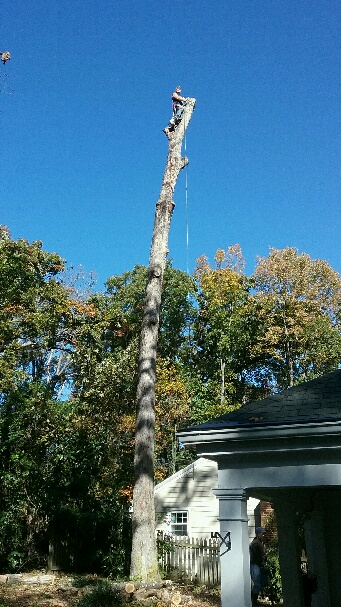Tree Disease
Bull City Tree Service Durham North Carolina believes that education is a powerful weapon when fighting invasive pests that target our trees and plants. Below is a quick summary of some of the threats your trees may be facing. When you believe you may have a pest issue, give us a call and let us help to stop the spread of these dangerous invaders.
-

Durham, North Carolina based Bull City Tree Service professionaly removes storm damaged and diseased trees.
Asian Longhorned Beetle (ALB) infests many different hardwood trees native to North Carolina including all species of maples, buckeye, willow, birch, elm, poplar, horse chestnut, mountain ash, ash, mimosa, katsura tree, sycamore, London plane tree and hackberry. ALB does not discriminate by tree age or target stressed trees primarily. Asian Longhorned Beetle does however prefer trees with trunks greater than 4 inches in diameter. Best practices are to respect quarantine if your area is suspected to have ALB as well as not moving around firewood that may be contaminated.
- Walnut Twig Beetle causes damage allowing the fungus Geosmithia morbida to infect 1000s of walnut trees. The North Carolina Department of Agriculture is currently monitoring the Butler, Hamilton, and Warren county area for new infestations.
- Emerald Ash Borer (EAB) targets all native species of ash, and once established kills the host tree in 3-5 years. There are several things that may indicate your ash tree has Emerald Ash Borer. Some indicators that your ash may be affected are; Branch dieback at the top of the tree, splits in the bark vertically, base of the tree beginning to sprout, evidence of woodpeckers feeding on larvae, D-shaped holes in the bark 1/8 inch in size. Statewide quarantine is in effect.
- Gypsy Moth is among the top threats to tree population in North Carolina. Already there have been a lasting destructive mark left where moths have reached defoliation levels. There is an effort to control this destructive pest through the use of a specific fungus that targets the moth while in caterpillar state.
Do you suspect your trees may be affected by one of these or another pest or disease? Let the experts check it out – call today to schedule your appointment.
